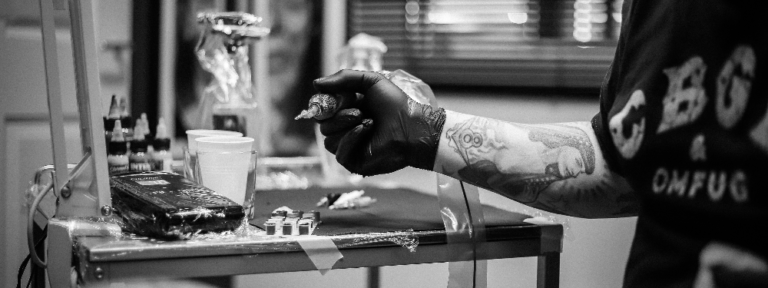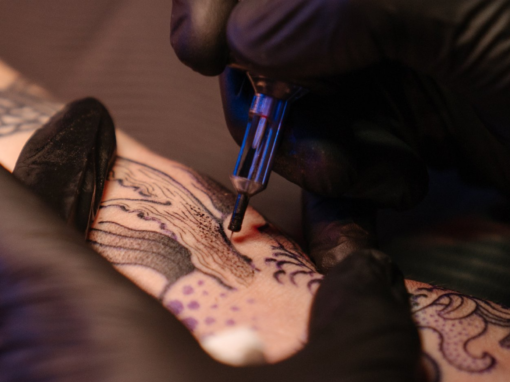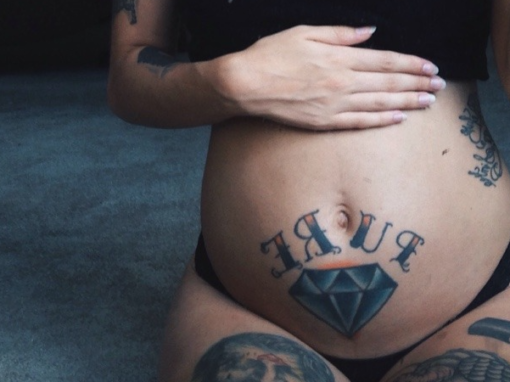Tattoo artists make their way in two routes: being self-taught or taking an apprenticeship. Many artists didn’t have one and succeeded, but there is an even bigger pool of those who failed and hurt people with scratchers. Apprenticeships are a much more structured and safer way to start a career as a tattoo artist.
We asked Tyler Cabrinha, a seasoned tattoo artist and mentor, about the ins and outs of tattoo apprenticeships. Here, you will read about what makes the best tattoo mentor, how to choose one, and who to avoid.
Meet Tyler “Next” Cabrinha

Tyler is a dedicated and passionate mentor in the tattooing industry. He was born and raised in Hawaii and is currently working at Hybiscus Tattoo And Piercing. He comes across as someone who sees his apprentices as part of a close-knit community or family.
At Hybiscus, Tyler fosters a supportive environment where apprentices feel valued and encouraged to excel, both professionally and as a person. Beyond technical skills, he instills a profound appreciation for the craft, nurturing creativity and fostering artistic exploration among his protégés. The InkMatch team had the pleasure of speaking with Tyler, and he was happy to share his thoughts on his approach and philosophy.
Qualities of a Good Mentor
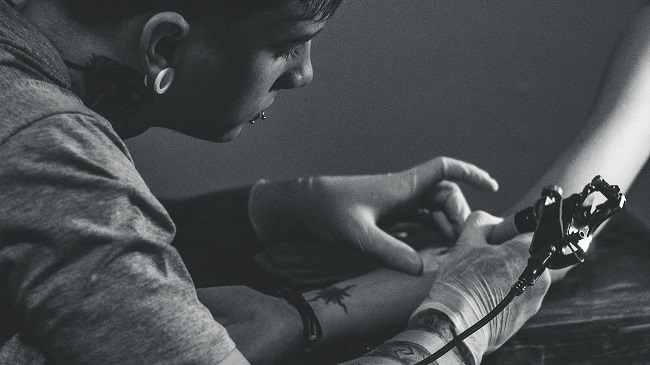
Searching for the greatest mentor for you can be quite a quest. There are many factors to consider, but the first step is to search for tattoo artists in your area.
Then there’s a variety of trials and errors. Some tattoo artists simply don’t take apprentices, others might have some red flags, and in some cases, you just might not like the vibe. A word of advice from Tyler, “Don’t mentor under that person if they’re not supportive of your preferred style. They probably don’t even do your style, and you’re not going to get what you’re really looking for out of it.”
That doesn’t mean you can’t learn something from their work if you appreciate the styles they do. But if they’re not strong in the style you’re aiming for, you probably shouldn’t be apprenticing under them. Artistically speaking, such a mentor won’t guide you in the right direction.
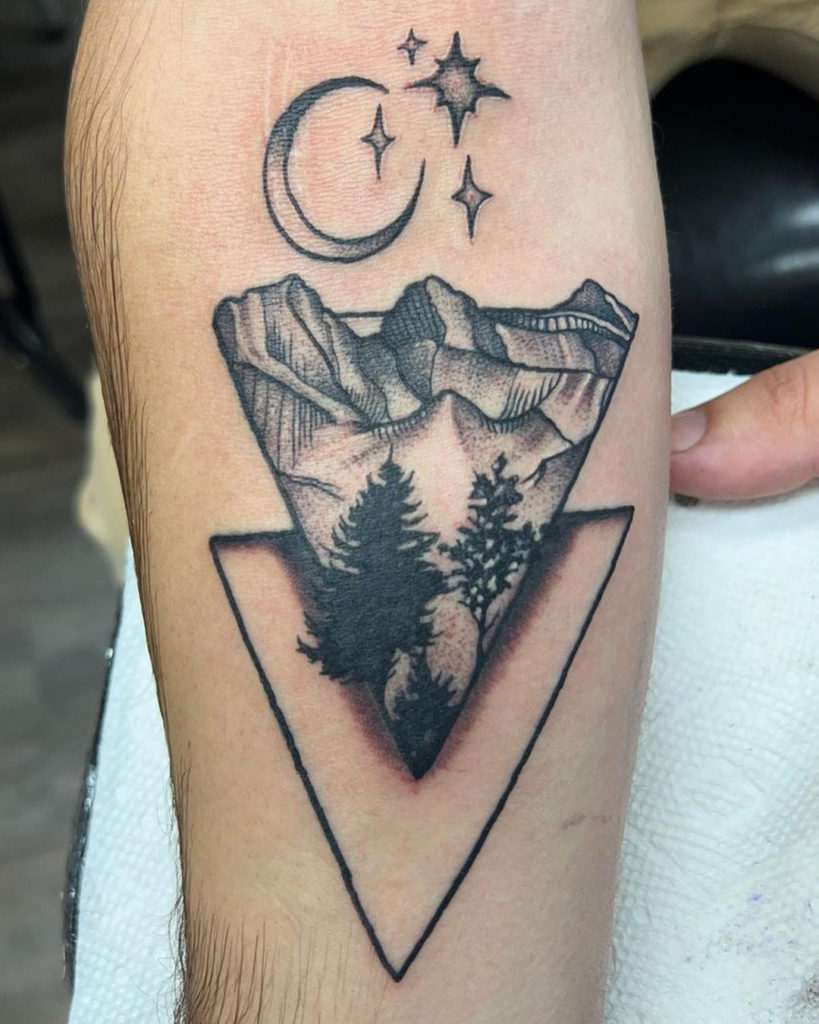
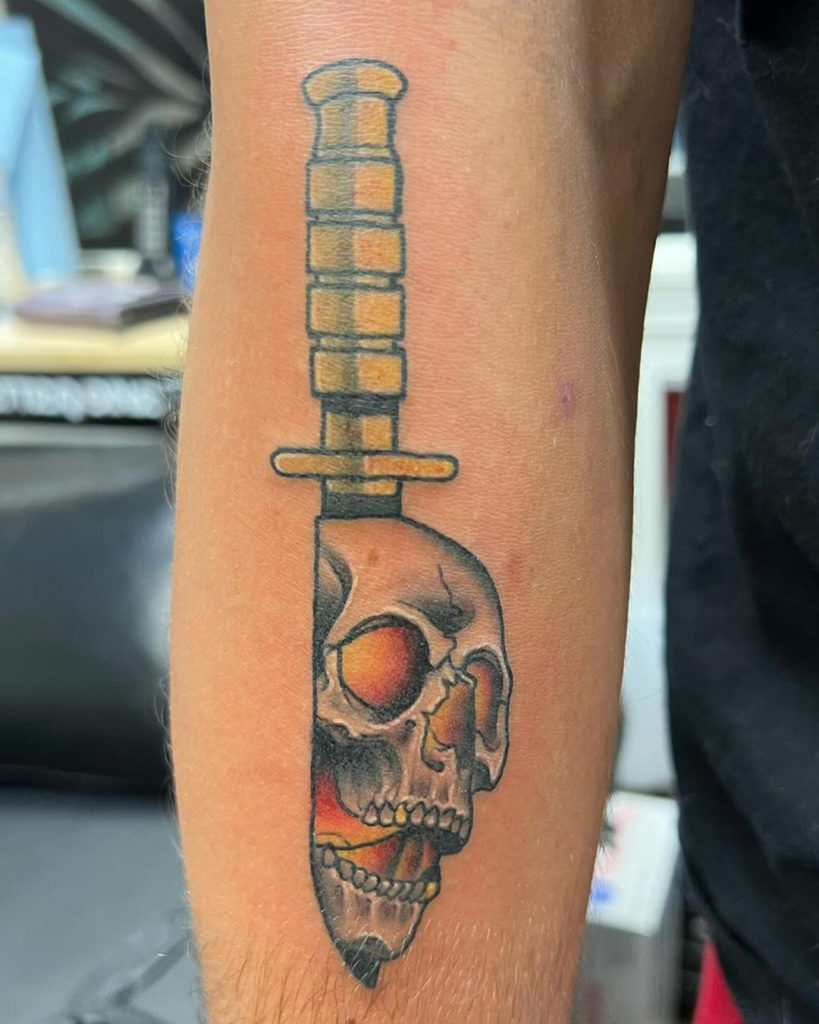

Works by Tyler Cabrinha. Source: Instagram
A great yet a bit unexpected way to bond with your future mentor is to get tattooed by them. As Tyler puts it, “As someone aspiring to be a tattoo artist, you must constantly work on your art. But your best bet is to go to shops, feel out the artists, love their work, and get tattooed by them to show how much you appreciate their work.”
From this perspective, you need to carefully consider what mentor and studio you’d like to align yourself with. What’s the point of getting an apprenticeship from a world-renowned tattoo artist if their style is not your cup of tea? Catching up with trends and fame will get you nowhere. “You need to love their work, tattoos, and style. Build that relationship, and hopefully, that person will take you on,” highlights Tyler.
Why You Need a Portfolio for Tattoo Apprenticeships
A portfolio is crucial when applying for a tattoo apprenticeship. It doesn’t need to be perfectly polished, but it should showcase a range of your artistic abilities. For example, Tyler prefers to see all sorts of art: “I want to see the work they’re very proud of, of course, and what they’re trying to achieve — their finely-tuned, finished work. But I also like to see the sketching, the roughness, the build-ups, and different mediums of art.”
However, this might sound frustrating to some aspiring tattooists. To become an apprentice, you need a portfolio, but to make a portfolio, you need to become an apprentice… It sounds like a vicious cycle, right?
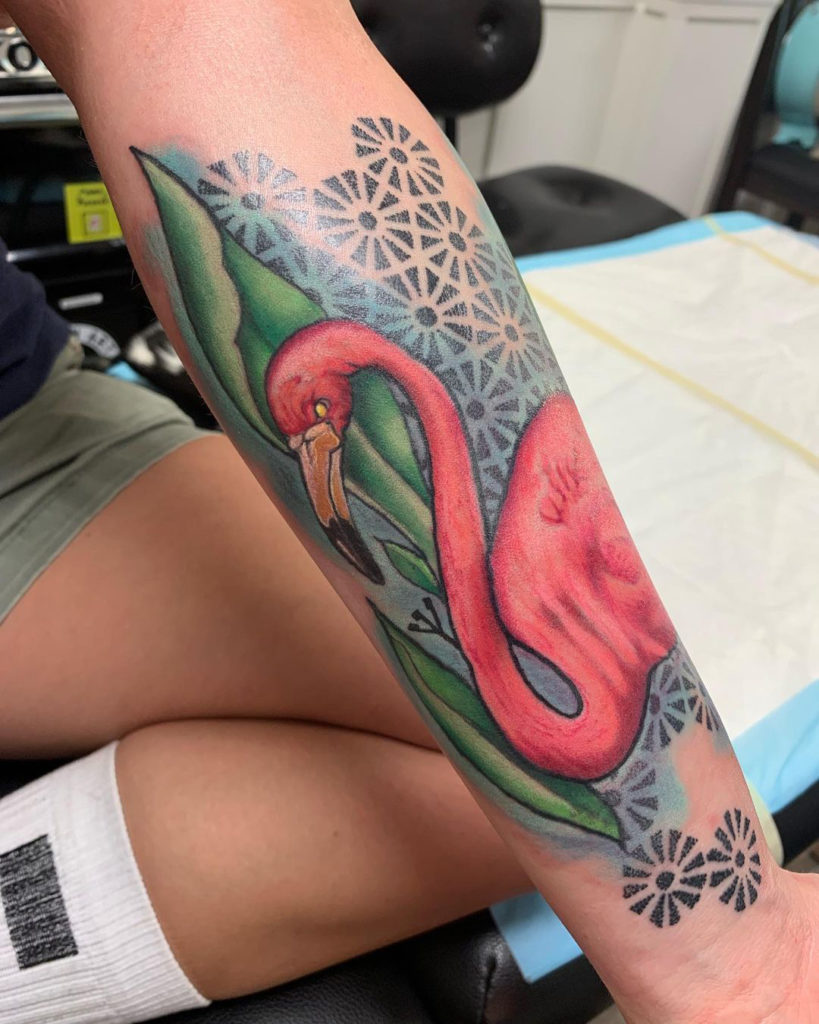
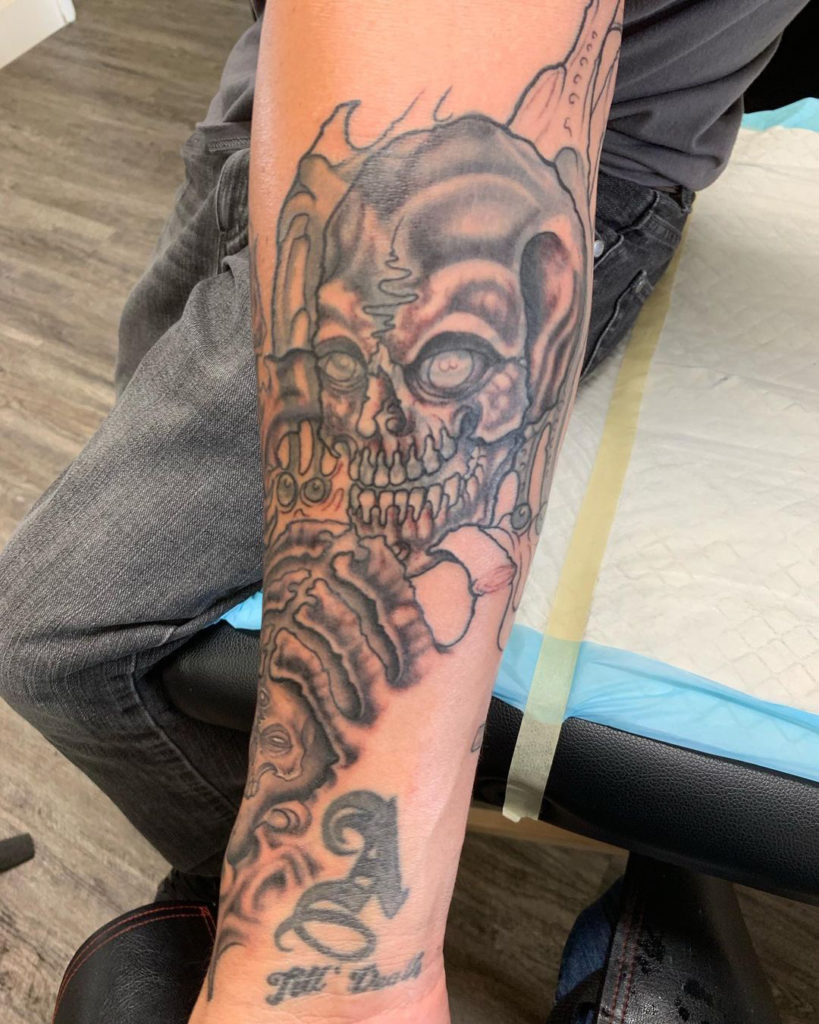

Works by Tyler Cabrinha. Source: Instagram
While some artists do take beginners, having a portfolio will significantly benefit your application. Mentors like to see the bigger picture of the person. Tyler shares, “I want to see how they develop their art beyond just the finished pieces. This shows a fuller picture of the artist. I’ve taken on artists who weren’t fundamentally ready to be tattooers because their art wasn’t quite there. But sometimes, the drive and passion are enough to help them focus.”
A good way to start building your portfolio is to practice the basics at home. Check out our step-by-step guide about tattooing fundamentals and how to practice without spending a fortune on a tattoo machine and fake skins.
“Art isn’t a talent, none of us were born good artists or Michelangelos. If you put in the work, anyone can become a great artist. Sometimes, you have to sacrifice time or quality a bit to focus on other areas where you may be strong. It can work out, and some people have done great work because they put in the effort, even if they didn’t start as strong as I would have liked.”
— Tyler Cabrinha to InkMatch
Red Flags To Watch Out for in a Tattoo Mentor
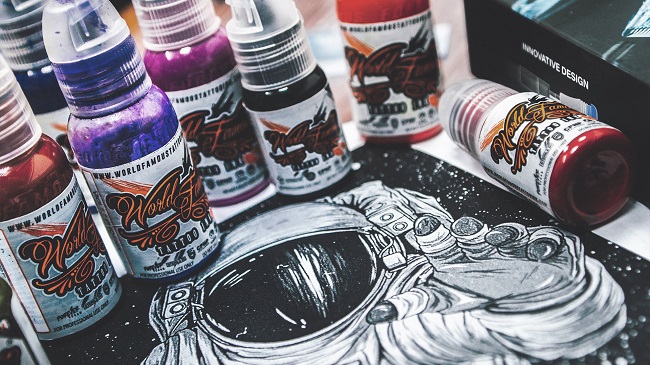
We asked Tyler’s opinion about tattoo apprenticeship red flags, and here are the four major tattoo mentor red flags to watch out for! Identifying these red flags can help ensure you find a mentor who will genuinely support your growth as a tattoo artist.
? Abuse in any form
Starting right off the bat, “If you’re being verbally or sexually abused, that’s a red flag.” It’s a tough topic, but unfortunately, this is a tough reality that we live in. There are known cases of sexual abuse with women clients, so there’s no guarantee some tattoo artists won’t take a similar advantage with an apprentice.
? Taking advantage instead of teaching
Tyler has shared insights about his approach to apprenticeships. In his words, apprentices have duties before opening and after closing, as well as some minor tasks that aren’t related to cleaning. However, the main focus throughout the day is the art and working on projects that help them improve in the styles they’re aiming for or become more versatile.
“Cleaning teaches health and cleanliness standards, but it also humbles you. It teaches you to respect where you are and what you’re doing for people. But if all you’re doing all day long is cleaning, without drawing, learning, or sitting through tattoos, then that’s a red flag. You’re just being used,” says Tyler. You came to the artist to trade your time and labor to the shop to learn the skill set, not to fill a janitor vacancy with no benefits.
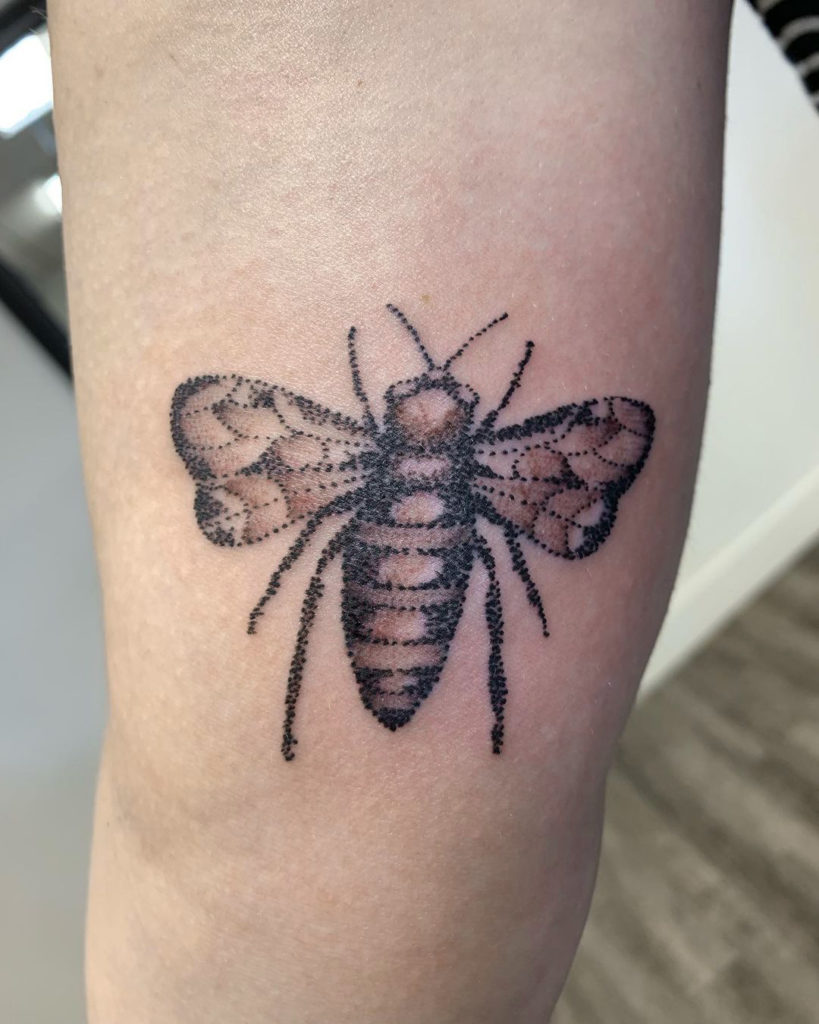
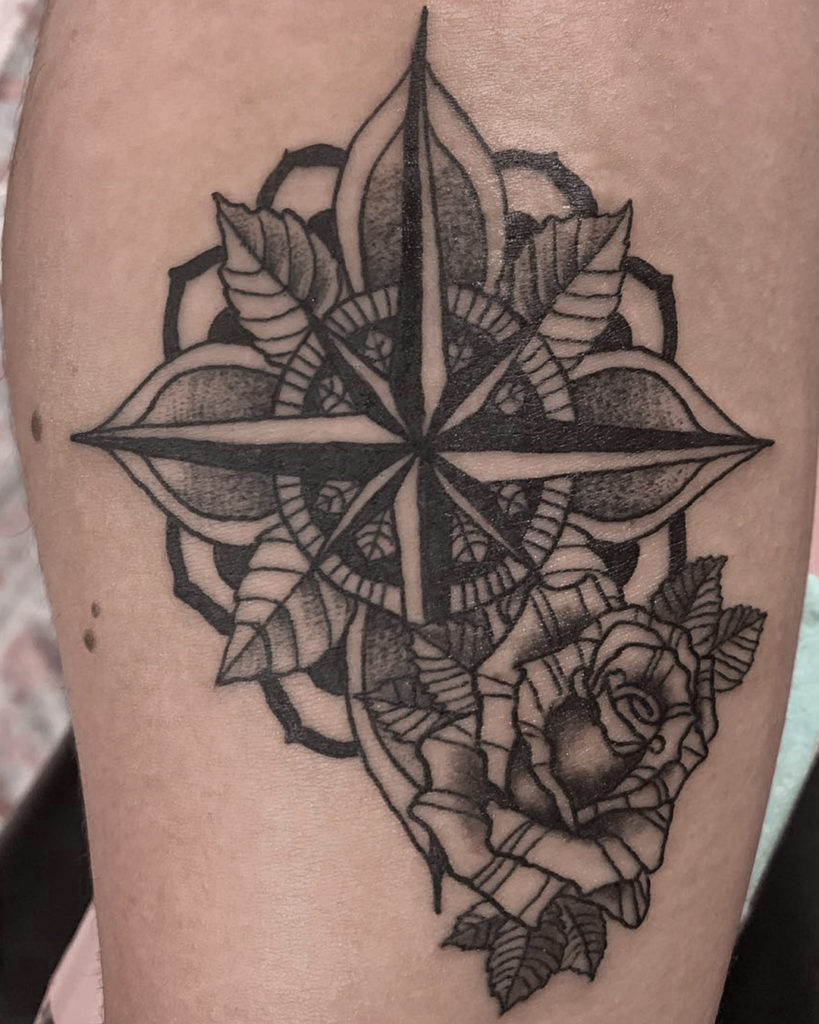
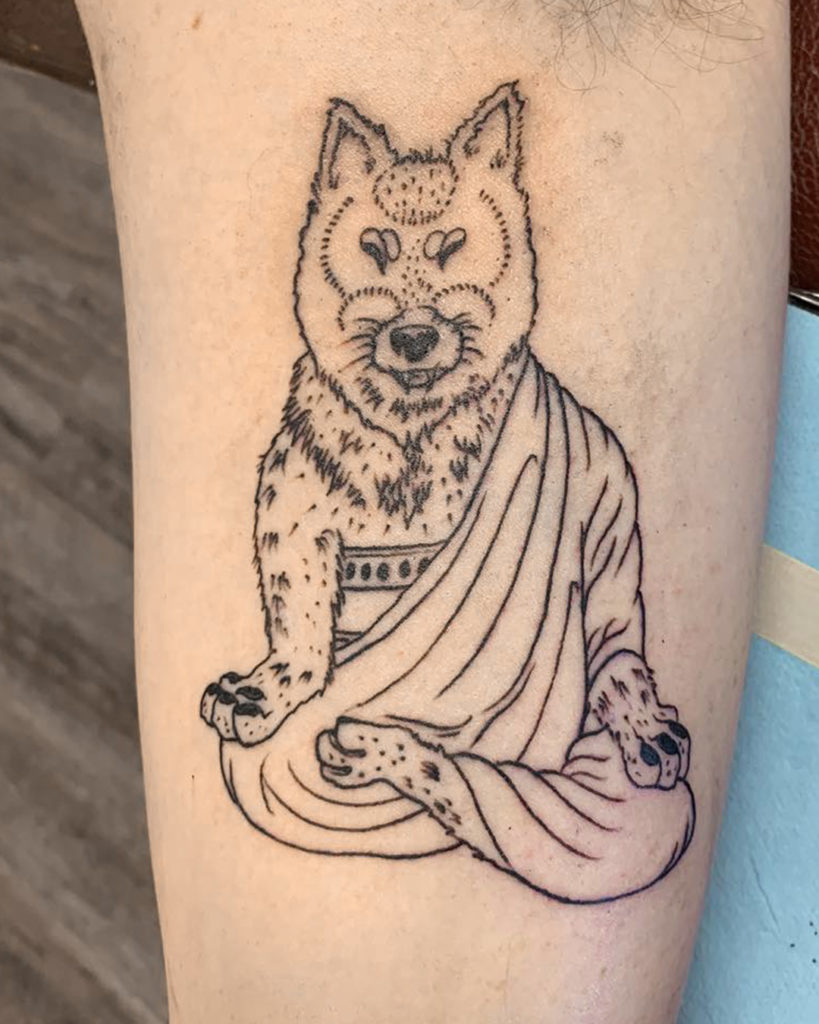
Works by Tyler Cabrinha. Source: Instagram
? Too many apprentices
If a tattoo mentor has more than three apprentices, they might simply not have enough time for each. Be wary of tattoo mentors who take on a lot of apprentices just for the pay, as this benefits them financially while you learn little to nothing. Tyler says, “Apprenticeships are very tough, so your mentor should be on that same road with you, putting in the time. Lack of attention and support is a big red flag.”
? Not supportive
A first apprenticeship tattoo on an actual client is a very important moment for aspiring tattoo artists, and you need as much support from your mentor as possible. That being said, if your mentor isn’t sitting through your first tattoo, even if it’s one on yourself, that’s a serious issue. Tyler even suggests that they probably haven’t been attentive during other important moments either.
This is also a matter of safety for the client, so “If you’re committed and your mentor isn’t there for your first tattoo unless it was an emergency, and they advised you not to tattoo that day, you should probably get out of that apprenticeship.”
Tips for Successful Apprenticeships
The joy of apprenticeship is incredible in its own way. How can you complete and enjoy your training to the fullest?
The best strategy is showing sheer curiosity and eagerness. You need to become like an inquisitive kid and always ask questions. Don’t be afraid of looking annoying; many mentors appreciate this and will let you know if you’re not ready for an answer yet. “A good mentor understands the learning curve and has the patience to guide you through it,” says Tyler, they’re tough when they need to be but always rooting for your growth.
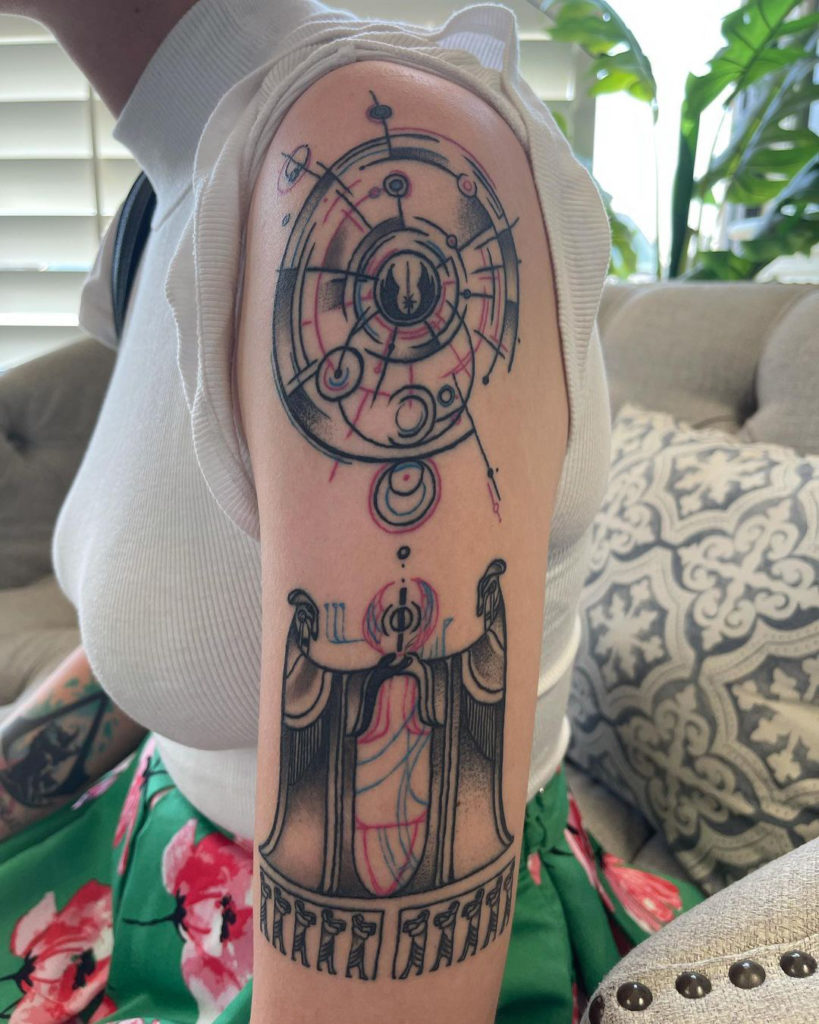
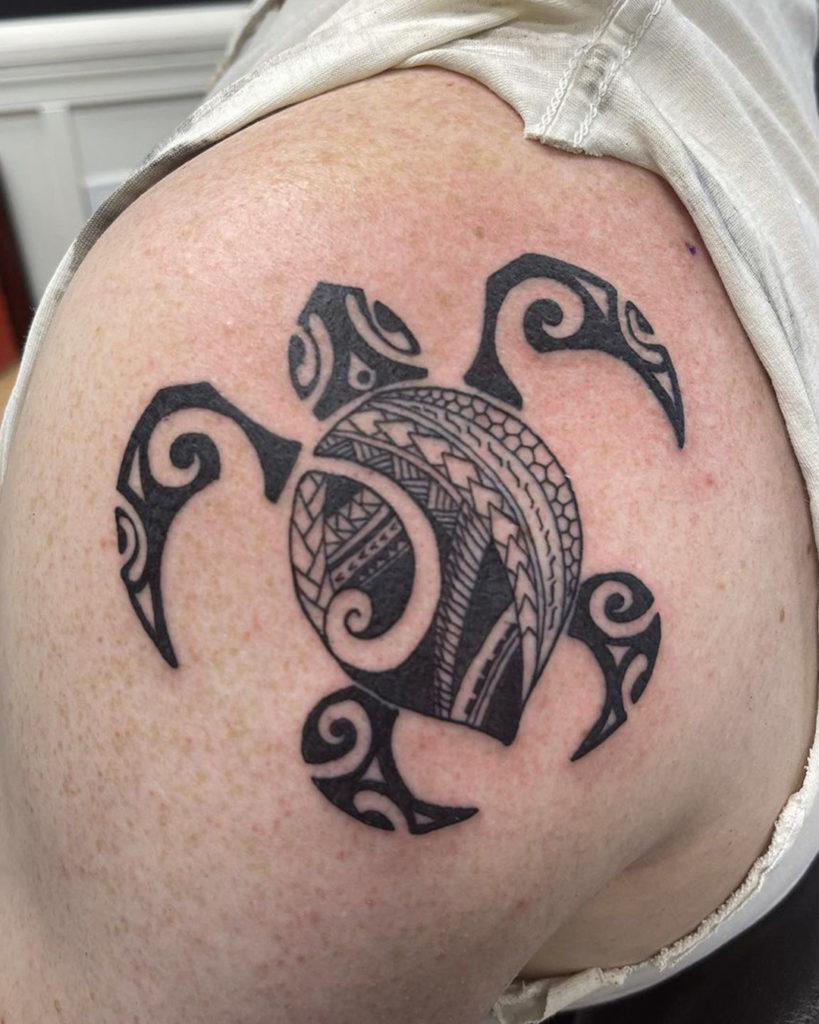
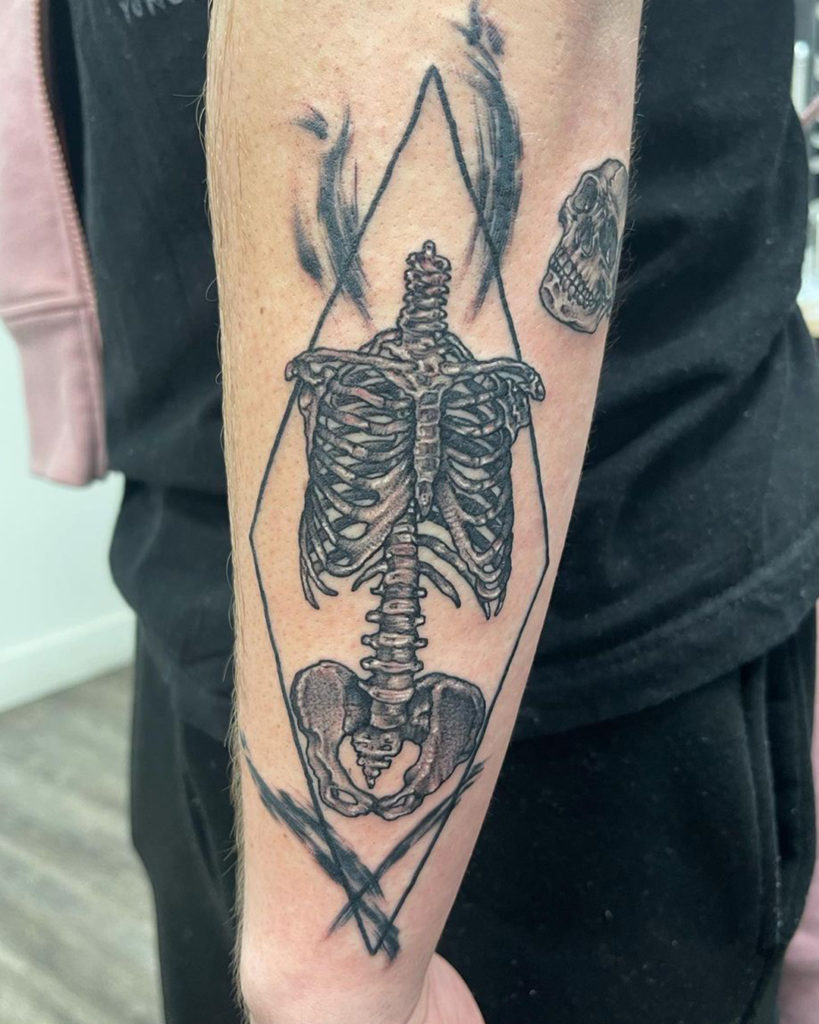
Works by Tyler Cabrinha. Source: Instagram
The second-best strategy is, who would’ve guessed, doing your best! Draw, listen, and don’t act like you know everything. Pretend you know nothing, learn everything, take notes, and you’ll go a long way. “Anything we’re doing, saying, or hinting at — quick notes can be incredibly helpful,” says Tyler. “These are things we probably didn’t do as mentors, but it’s essential to appreciate the craft and what people did before us.”
Additionally, learning the history of tattooing and respecting those who paved the way is also a great strategy. Look at the older tattooers and respect them, even if your mentor doesn’t. This will help make you a better and more respected tattooer in the craft.
Summary
Finding the right mentor might take time, but the effort will pay off when you find someone whose style and values align with yours. Apprenticeship is not just about learning the skills but finding someone who believes in your potential and nurtures your creativity.
As we’ve discussed with Tyler Cabrinha, qualities like expertise, patience, supportive mentorship style, and even historical appreciation are essential for a fulfilling apprenticeship experience. Keep pursuing your passion with dedication and enthusiasm, and get ink-spired even more by reading stories of different tattooists across the United States.
FAQ
✒️ How Long Is a Tattoo Apprenticeship?
Tattoo apprenticeships are marathons, not sprints. Generally, they run for about a year or two, depending on the shop, your learning pace, and the skills of your mentor.
? How To Be the Best Tattoo Apprentice?
Dedication and a willingness to learn are key to learning the most from your apprenticeship. Ask questions, take notes, and draw a lot. Tyler Cabrinha also suggests showing initiative and respect for the craft’s history.
? What Do Tattoo Apprentices Do?
Apprentices assist in shop maintenance, sterilization, practicing their skills, and preparing equipment. Your mentor is here to check on you as you progressively take on more complex tasks and improve your skills.
? What Are the Requirements for Becoming a Tattoo Apprentice?
Every teacher is different and has their own requirements, but having formal art skills and a portfolio will help your mentor get to know you better. Also, just a heads-up: most tattoo shops only accept students who are 18 or older.

